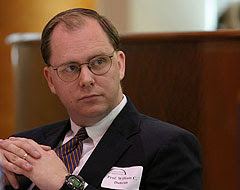From the Desk of Laura Bunker:
Three weeks ago, the U.S. Senate invoked a “nuclear option” that changed the way judges can be nominated. As UFI Board member and legal expert Bill Duncan explains in this week’s alert, “A change in Senate rules is just a way of easing the way to presidential and judicial mischief.” Because of this, it is more important than ever to educate voters and help them understand the far-reaching effects of their votes.
UFI can help with that critical education. Our weekly newsletters and our WorldFamilyNews feature reaches thousands of people across the United States and the world.
Please help us continue this important work by remembering UFI in your “end-of-the-year” charitable giving. Any amount is gratefully received and carefully used, but if you were to put us on your monthly automatic donation list, we would do the dance of joy!
Also, please forward this email to five friends who care about preserving the Natural Family. By inviting them to sign up for our weekly alerts, you’ll be giving them the gift of education and empowerment.
Warm Regards,
Laura Bunker
President, United Families International
The Real Problem with the “Nuclear Option”
William C. Duncan
In a 52-48 vote on November 21 the majority Democrats in the Senate repealed a provision that allowed a Senator to filibuster an executive branch nominee unless a vote of at least sixty Senators could be mustered to end that filibuster. This change is called the “nuclear option” suggesting an extreme change. This means that, now, a controversial nominee need only receive a simple majority to be confirmed. In the current partisan breakdown of the Senate, this means a nominee could be confirmed with support from only one party’s Senators.
What are we to make of this?
In the short term, it will probably lead to serious problems. The current administration has shown a penchant for nominating federal judges with extreme views on matters from the application of international “norms” to the United States to school curriculum, not to mention the definition of marriage and the protection of unborn life.
The “nuclear option” will make it simpler for these kinds of judges to be added to the court, since smaller majorities will be required to get the president’s nominations approved. The spillover effect could be large—judicial adventurism (reading things into the Constitution that aren’t there) on social issues is more likely if those who are concerned about adherence to the actual meaning of the Constitution are unable to defeat nominees who see the Constitutional text as merely a launching pad for social engineering.
Less striking, but still real, is the possibility that the working relationship between sitting judges will be strained as more ideological appointments are made. If, as can unfortunately be expected, judges are appointed for political reasons, important considerations such as professionalism and temperament could be disregarded.
In the long run, however, there could be advantages in the changed rule. For instance, in the circumstance of the election of a president and/or Senate majorities committed to a faithful reading of the Constitution and appropriate deference to the proper role of the branches of government, appropriate judges could be more easily appointed.
This points to the real, underlying problem. A change in Senate rules is just a way of easing the way to presidential and judicial mischief. The risk comes not because of the rule change but because too many politicians have lost sight of the Framers’ vision of a government of limited powers. They now see the court system as a vehicle for advancing radical innovations that would not be accepted by a majority of the people until those people view the innovation as a “done deal” they dare not oppose for fear of incurring the dread label of bigotry.
As Supreme Court Justice Antonin Scalia noted during the last term:
“The judicial power as Americans have understood it (and their English ancestors before them) is the power to adjudicate, with conclusive effect, disputed government claims (civil or criminal) against private persons, and disputed claims by private persons against the government or other private persons. Sometimes (though not always) the parties before the court disagree not with regard to the facts of their case (or not only with regard to the facts) but with regard to the applicable law—in which event (and only in which event) it becomes the “‘province and duty of the judicial department to say what the law is.’” In other words, declaring the compatibility of state or federal laws with the Constitution is not only not the “primary role” of this Court, it is not a separate, free-standing role at all. We perform that role incidentally—by accident, as it were—when that is necessary to resolve the dispute before us.“
The question going forward is how such a vision of the federal courts can be reclaimed. As the filibuster rule debate reminds us, the dispute is primarily political. That provides the clue to what could be done.
Obviously, a massive educational and political campaign needs to be launched to help voters understand how their participation in elections affects far more than just a caretaker for a specific government role for the next four or six years. It will be much farther-ranging as those they elect appoint and confirm nominees to federal office whose actions can long outlive the terms of the politicians.
It must be made clear that one of the most important issues at stake in any presidential or senatorial election will be whether we get judges who see their role as dismantling social norms or judges who believe they must faithfully apply federal law to specific disputes without regard to ideology or personal preference.
Perhaps put more bluntly, it’s a choice of whether to retain the power of self-government or to delegate control of the laws that govern us to unelected officials who see the principles we cherish as, at best, outmoded or, at worst, obstacles to a thoroughgoing remaking of our culture.
__________________________________________________________________


